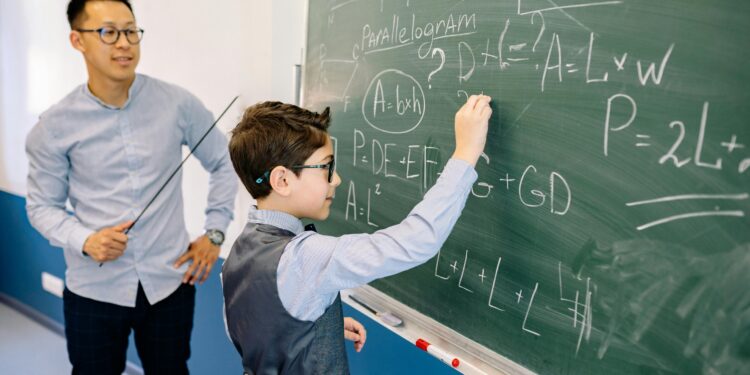Credits: Yan Krukau from Pexels
A new one Nature Human Behavior A study, led jointly by Dr Margherita Malanchini of Queen Mary University of London and Dr Andrea Allegrini of University College London, found that non-cognitive skills, such as motivation and self-regulation, are as important as intelligence in determining academic success. These skills become increasingly influential throughout a child’s schooling, with genetic factors playing a significant role.
The research, conducted in collaboration with an international team of experts, suggests that developing non-cognitive skills alongside cognitive abilities could significantly improve academic outcomes.
“Our research challenges the long-held assumption that intelligence is the primary driver of academic achievement,” says Dr Malanchini, a lecturer in psychology at Queen Mary University of London.
“We found compelling evidence that non-cognitive skills, such as grit, persistence, academic interest and the value placed on learning, are not only important predictors of success, but that their influence strengthens over time.”
The study, which followed more than 10,000 children aged 7 to 16 in England and Wales, used a combination of twin studies and DNA-based analysis to examine the complex interplay between genes, environment and academic performance.
The Power of Non-Cognitive Genetics
One of the most striking findings is the growing role of genetics in shaping noncognitive skills and their impact on academic achievement. By analyzing DNA, the researchers constructed a “polygenic score” for noncognitive skills, essentially a genetic snapshot of a child’s predisposition to those skills.
“We found that the genetic effects associated with non-cognitive skills become increasingly predictive of academic achievement over the school years. In fact, their effect almost doubles between the ages of 7 and 16,” says Dr Allegrini, a researcher at University College London.
“By the end of compulsory schooling, genetic dispositions toward noncognitive skills were just as important as those related to cognitive abilities in predicting academic success.”
The finding challenges the traditional view that academic success is largely determined by intelligence. Instead, the study suggests that a child’s emotional and behavioral makeup, influenced by both genes and environment, plays a crucial role in their educational journey.
The role of the environment
While genetics undoubtedly plays a role in noncognitive skills, the study also highlights the importance of environment. By comparing siblings, the researchers were able to isolate the impact of shared family environment from genetic factors.
“We found that while family processes play an important role, the growing influence of noncognitive genetics on academic achievement remains evident even within families,” said Dr. Allegrini. “This suggests that children can actively shape their own learning experiences based on their personality, dispositions, and abilities, creating a feedback loop that reinforces their strengths.”
Consequences for education
The findings of this study have profound implications for education. By recognizing the critical role of non-cognitive skills, schools can develop targeted interventions to support students’ emotional and social development alongside their academic learning.
“Our education system has traditionally focused on cognitive development,” said Dr. Malanchini. “It is time to rebalance this priority and give equal importance to the development of non-cognitive skills. In doing so, we can create a more inclusive and effective learning environment for all students.”
The study also highlights the need for further research into the complex interplay between genes, environment and education. By understanding these factors, educators and policy makers can develop more effective strategies to support students’ overall development and achieve better academic outcomes.
Dr Malanchini concluded: “This study is just a beginning. We hope it will inspire further research and lead to a transformation in our approach to education.”
More information:
Genetic associations between noncognitive skills and academic achievement during development, Nature Human Behavior (2024). DOI: 10.1038/s41562-024-01967-9
Provided by Queen Mary, University of London
Quote:Non-cognitive skills: DNA-based analyses suggest hidden key to academic success (2024, August 26) retrieved August 27, 2024 from
This document is subject to copyright. Apart from any fair dealing for the purpose of private study or research, no part may be reproduced without written permission. The content is provided for informational purposes only.



